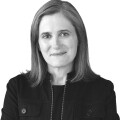Bloomberg's too little, too late stop and frisk apology tour

Five million. That's the number of times that New York City police stopped people during the stop and frisk program when billionaire Michael Bloomberg was mayor.
Stop and frisk is when police stop a person, usually force their hands against a wall, and aggressively pat them down, looking for a weapon or contraband. This week, the former mayor, now rising in the polls as a 2020 Democratic presidential candidate, issued an apology for stop and frisk, saying that he "inherited the police practice." But the fact is, after Bloomberg became mayor in 2002, NYPD stop and frisks increased by 700%. The vast majority targeted were black and brown youth. Statistics showed that, among all those stopped, whites proved to be twice as likely to be carrying a gun. Despite that, only 10% of those frisked were white.
The policy terrorized communities of color across New York City. Outraged citizens marched by the thousands, once converging on Bloomberg's mansion on the Upper East Side. The Center for Constitutional Rights finally prevailed in a lawsuit in 2013, as Bloomberg's third term as mayor was nearing its end. "This is an indirect form of racial profiling," U.S. District Court Judge Shira Scheindlin wrote in her opinion. "It leads NYPD officers to stop blacks and Hispanics who would not have been stopped if they were white."
Scheindlin imposed strict reforms on the NYPD with a court monitor to ensure implementation. The Bloomberg administration appealed and won a stunning legal victory: Not only did the appeals court issue a stay of the ordered reforms, allowing the NYPD to continue to stop and frisk during the appeal, but, in an unusual move, the court also removed Scheindlin from the case. The Bloomberg administration was also behind attempts to impugn Scheindlin's reputation by shopping around media stories that she had an "anti-cop" bias.
Ultimately, Bill de Blasio won his race to succeed Bloomberg, and his administration dropped the appeal. The use of stop and frisk has fallen precipitously under de Blasio, and the monitor Judge Scheindlin appointed is still overseeing the NYPD's compliance with the court's orders.
A year ago, Michael Bloomberg was clear that he wasn't going to run for president. He said he couldn't "unless I was willing to change all my views and go on what CNN called an apology tour." Jump ahead to November, and he changed his tune. Addressing predominantly African American parishioners at the Christian Cultural Center in Brooklyn, Bloomberg said, referring to stop and frisk, "Back then, I was wrong, and I am sorry." A week later, he announced his candidacy for president.
Bloomberg's apologies continue. On Tuesday, he released a statement on stop and frisk that read, "as part of our effort to stop gun violence, it was overused. By the time I left office, I cut it back by 95%, but I should've done it faster and sooner. I regret that, and I have apologized -- and I have taken responsibility for taking too long to understand the impact it had on black and Latino communities."
Bloomberg issued his latest apology only after two damning recordings surfaced. One, from a talk he gave at the Aspen Institute in 2015, captured Bloomberg saying:
"Ninety-five percent of murders - murderers and murder victims fit one M.O. You can just take the description, Xerox it, and pass it out to all the cops. They are male, minorities, 16-25. That's true in New York, that's true in virtually every city (inaudible) ... Put those cops where the crime is, which means in minority neighborhoods ... the way you get the guns out of the kids' hands is to throw them up against the wall and frisk them."
The audio was discovered by journalist Benjamin Dixon. "It was online. It was hiding in plain sight," Dixon us on the Democracy Now! news hour. "Bloomberg's team actually requested that the video from the Aspen Institute not be released. It had been online for five years ... I felt like people needed to hear his voice say these things."
In another clip from WOR radio in New York in 2013, Bloomberg said, "They just keep saying, 'Oh, it's a disportionate [sic] percentage of a particular ethnic group'...I think we disportionately stop whites too much and minorities too little."
Up until his presidential campaign, Michael Bloomberg stood by his guns - the NYPD guns pointed at the heads of New York City's communities of color. Now that he needs these very communities to vote for him across the country, he has apologized for targeting them. This is too little, too late, Mayor Bloomberg. Sorry.
(c) 2020 Amy Goodman and Denis Moynihan Distributed by King Features Syndicate
